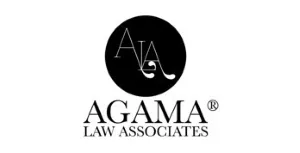- in United States
- within Media, Telecoms, IT, Entertainment, Transport and Family and Matrimonial topic(s)
- with readers working within the Retail & Leisure and Law Firm industries
Background
On 1st March 2021, a three-judge bench of Hon'ble Supreme Court, in P. Mohanraj & Ors. vs M/s Shah Bros Ispat Ltd1, adjudicated on an important issue which arose in the said appeal. The question was whether the institution or continuation of a proceeding of dishonour of cheque against companies2 under the provisions of Negotiable Instruments Act, 1888 ("NI Act") can be said to fall within the ambit of moratorium provision of the Insolvency and Bankruptcy Code, 20163 ("Code").The Supreme Court ruled that when an order of moratorium is in force under the Code, a parallel proceeding under Section 138 or 141 of the NI Act against a corporate debtor cannot be allowed to continue because the same shall fall under the relief of Section 14(1)(a) of the Code.
Simply put, when a Corporate Insolvency Resolution Proceeding ("CIRP") is pending under the Code, then during such pendency, a parallel proceeding of dishonour of cheque against a corporate debtor cannot be instituted (and if already instituted, cannot continue) under Section 138 or 141 of the NI Act.
This might seem to be a big relief on the face of it for the corporate debtors, however there is more to it than it appears. The Hon'ble Supreme Court went on to assert that the relief of moratorium provision contained in Section 14 of the Code would apply only to the corporate debtor while the "natural persons" mentioned in Section 141 continue to be statutorily liable under the NI Act. Technically it means that the proceedings can be initiated (and if already instituted, can continue) against the directors, officers in charge of the affairs of the corporate debtors under the NI Act.
Implications of the provisions of the NI Act
The idea of inserting penalties in case of dishonour of cheques for insufficiency of funds in the accounts was to retain the faith in the banking operations and strengthening the credibility of the negotiable instruments.
According to Section 138 of the NI Act, if the ingredients mentioned therein are fulfilled, the perpetrator shall be liable for punishment. Such perpetrator shall be punished with imprisonment for a maximum period of two years or fine which may extend to twice the amount of the cheque or with both.
As per Section 141 of the NI Act, if the offender is a company, then every person who, at the time when such offence was committed, was responsible for conducting the business of the company, shall be deemed to be guilty of the offence mentioned under Section 138 of the NI Act along with the company. Thus, the director, manager, secretary, or other officers shall be deemed to be guilty if it is proved that the offence was committed with the consent, connivance, or any neglect on their part. However, such person shall not be liable if he proves that the offence committed was without his knowledge and/or he had exercised all due diligence so as to prevent the commission of the offence. Apart from this, a person, if nominated as a director of a company because he holds an office or employment in the Central or State Government or in a financial corporation controlled by such Government, shall not be liable for the offence under Section 138 of the NI Act.
Hence, it is safe to say that Section 141 of the NI Act imposes vicarious liability on the directors, managers, or officers in charge (natural persons) if the offence under Section 138 of the NI Act is committed by the company (a juristic person).
Moratorium under the Code
In simple terms, moratorium is a period during which, by means of legal authorization, a debtor could effectively postpone payments until the expiration of such period. Under the Code, moratorium as per Section 14(1)(a), prohibits the institution or continuation of suits or proceedings against the corporate debtor.
This moratorium will kick in once the CIRP proceedings are initiated and an interim insolvency resolution professional is appointed. The underlying idea for such relief is to provide a shield to the corporate debtor against additional monetary attacks and to facilitate systematic completion of CIRP without disturbing the assets of the corporate debtor and this may ultimately help the corporate debtor to rehabilitate itself.
Judgment Analysis
The Hon'ble Supreme Court in P. Mohanraj & Ors. vs M/s Shah Bros Ispat Ltd held that the moratorium as per Section 14 of the Code shall extend to include criminal proceedings under Section 138 of the NI Act for cheque bounce cases. The Apex Court observed that, "a quasi-criminal proceeding under Section 138 holds the capacity to deplete the assets of the corporate debtor and the punishment if imposed would have an adverse impact on the insolvency resolution process."
Now, coming to the most interesting part of the judgment. In the said judgment, the Apex Court discusses that to implead the natural persons under Section 141 of the NI Act, the commission of the offence by the company is an express pre-condition. The fulfilment of this condition will attract the vicarious liability of the natural persons. The words "as well as the company" under Section 141 of the NI Act has been strictly construed by the Apex Court. The Apex Court arrived at the "irresistible conclusion" that for prosecuting natural persons under the said Section, it is imperative to arraign the company as an accused. The Apex Court reiterated the stand taken by it previously in the matter of Aneeta Hada and Ors. vs. Godfather Travels and Tours Pvt. Ltd4 and heavily relied on the same.
However, the Apex Court also, observed that the moratorium provision under Section 14 of the Code would apply only to the corporate debtor while the natural persons mentioned under Section 141 of the NI Act continue to be statutorily liable under the NI Act.
This part of the judgment is bewildering and incongruous to what the Hon'ble Supreme Court asserted in the paragraphs above. On one hand the Apex Court agrees that the natural persons under Section 141 of the NI Act are vicariously liable and on the other hand it says that relief of moratorium would extent to the corporate entity only. This implies that the directors, managers, secretary, or other officers will be liable (or continue to be liable if the proceedings are already instituted) under Section 138 or 141 of the NI Act during the moratorium and such liability would not extent to the company. Thus, the shield of moratorium has been extended to the company only and not to natural persons under Section 141 of the NI Act.
What lies ahead for proceedings under u/s 138 or 141 of NI Act
This judgment, inevitably, gives rise to confusion and several unanswered questions. Now considering that during moratorium, the corporate entity is not impleaded in the cheque bounce proceedings but the natural persons continue to observe their responsibility, will such natural persons be liable under personal capacity or professional capacity or if corporate entity is a party but cannot be prosecuted and stay qua the corporate entity is granted, how would the courts arrive at the final conclusion?
For an already instituted cheque bouncing case, can the competent court still move ahead and continue to adjudicate the case against the natural persons when the proceedings against the company is not stayed in view of this Apex Court judgement?
In Sum
The aim of this judgement was definitely to extend the protection to the corporate entities and to provide them "breathing space" during CIRP so that they can ultimately rehabilitate themselves. However, the observations made by the Apex Court pertaining to natural persons seems to be creating a complex network of perplexity and may also be apparent miscarriage of justice. This part of the judgment when enforced, may be defiant to the vicarious liability principle under Section 141 of the NI Act. If the offence of cheque bouncing is committed by a juristic person and the related natural persons are impleaded as per Section 141 of the NI Act, then shouldn't the relief given under moratorium extend to them equally?
Thus, the effect of such enforcement seems incongruous to what the Hon'ble Supreme Court asserted in the paragraphs above. This could be an impediment not only for the other courts but also for the accused natural persons. More clarity on the matter is required to enable the other courts to exercise their duty in cheque bouncing cases against a company as well as against the natural persons during moratorium. It may be expedient for the Government to bring about an appropriate legislative amendment at the earliest in keeping with the broad principle laid down by the Hon'ble Supreme Court, to avoid confusion and multiplicity of proceedings.
Footnotes
1 MANU/SC/0132/2021
2 Section 138 and Section 141 of the Negotiable Instruments Act, 1888. Available at https://legislative.gov.in/sites/default/files/A1881-26.pdf
3 Insolvency and Bankruptcy Code, 2016. Available at http://www.mca.gov.in/Ministry/pdf/TheInsolvencyandBankruptcyofIndia.pdf
4 AIR 2012 SC 2795
The content of this article is intended to provide a general guide to the subject matter. Specialist advice should be sought about your specific circumstances.
[View Source]


